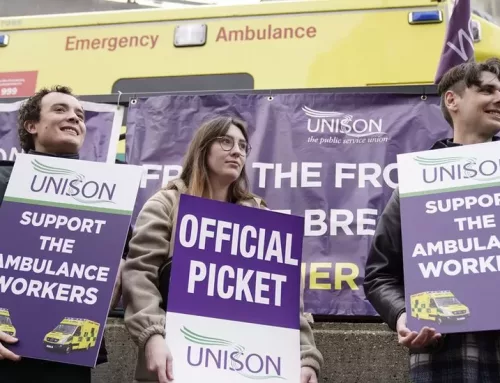 Unions could be sued if they do not provide minimum levels of fire, ambulance and rail services, under planned anti-strike laws.
Unions could be sued if they do not provide minimum levels of fire, ambulance and rail services, under planned anti-strike laws.
Voluntary agreements would cover other sectors including health, education, other transport services, border security and nuclear decommissioning.
The measures will not resolve the current wave of strikes.
Unions have condemned the restrictions and threatened legal action, while Labour says it would repeal them.
Business Secretary Grant Shapps said the measures were being introduced to “restore the balance between those seeking to strike and protecting the public from disproportionate disruption”.
The legislation is expected to be published next week, with MPs debating it for the first time the week after. It will apply in England, Scotland and Wales – but not in Northern Ireland.
It is likely to face significant opposition in the House of Lords, as only transport strikes were mentioned in the Conservatives’ 2019 manifesto pledge to introduce minimum service levels.
The Times newspaper quoted a government source saying striking workers who defied minimum service rules could face dismissal for breach of contract.
But a business department source told the BBC it was “not our intention to penalise individuals”.
Under existing laws, people who take illegal strike action can already be sacked.
The business department also called on the unions to cancel upcoming strikes in a bid to resolve the current disputes “constructively through dialogue”.
It said it would invite unions to meet for “honest, constructive conversations” about what was “fair and affordable” in public sector pay settlements for 2023/24.
But a number of unions have cast doubt on their continued involvement in the independent pay review process.
Gary Smith, GMB general secretary, said: “There are huge questions over the NHS Pay Review Body, as ministers’ actions have consistently undermined its independence. The process needs real reform.”




